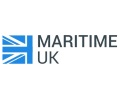

Women and male allies from across rail, aviation international, transport and maritime have joined forces to learn from each other, and drive progress on diversity and inclusion.
Following their first summit during London International Shipping Week (15th September), the industries have agreed to regular dialogue and yearly meetings on gender equality focusing on progression and retention, careers, mental health and ethnicity and race.
Led by Maritime UK in collaboration with KTN, this marks the UK’s first cross-sector dialogue on gender equality in transport, recognising the obstacles and opportunities in common between industries.
This follows Maritime UK’s efforts on diversity during London International Shipping Week (13-17th September), who have also established an annual ‘Pride in Maritime’ day, starting on 28th February next year. The day will coincide with LGBT+ History Month and celebrate the sector’s LGBT+ community and challenge traditional stereotypes about the industry.
Sarah Kenny, Chair of Maritime UK, said:
“As one of the most global of industries, we must continue our progress on diversity to reflect the world we serve.
“And on our path towards net zero, digitalisation and automation, our sector needs skills from every background, and every walk of life.
“This is why our diversity programme is so crucial, making the industry a home for everybody, and smashing stereotypes, so all can see the opportunities that could await them in maritime.”
Robert Courts, Maritime Minister said:
“Diversity is key to the success of any industry and as we move towards a new era of autonomous transport and green technology, innovative and fresh ways of thinking are more important than ever.
“Building on the vision set out in our Maritime 2050 strategy, it’s right that the maritime sector, one of Britain’s oldest and most well-loved industries, is leading the charge on a new chapter of inclusion and diversity in transport.”
Maritime UK’s diversity programme during London International Shipping Week (LISW) saw diversity and inclusion summits held on each day.
Kicking off with a hybrid event on ‘how to make maritime more welcoming to LGBT+’, leaders from the International Transport Workers’ Federation, Shipowners’ Club, and Honourable Company of Master Mariners, were among those who joined the Maritime UK’s Pride in Maritime Network on board HQS Wellington, a WWII Merchant Navy vessel moored on the Thames.
They agreed to hold the inaugural ‘Pride in Maritime’ day and discussed new policies and toolkits to support LGBT+ employees.
This was followed by a roundtable on Tuesday, focusing on how organisations in maritime can ‘call out, call in and call on’ in support of ethnic minorities in the industry.
Nus Ghani MP, the former maritime minister, introduced the event for women held the next day, which marked the first combined gathering of the leaders of Women in Rail, Women in Aviation, Women in Transport and Women in Maritime, where all agreed to maintain regular dialogues and hold yearly summits.
Thursday saw Mark O’Neil, the CEO of Columbia Shipmanagement, calling for people to be treated as the industry’s prime asset during Maritime UK’s mental health andwellbeing event, with culture changes needed across the industry to safeguard workers both onshore and offshore.
And Friday’s session brought together the week’s discussions, with leaders across the sector including Richard Clayton, Chief Correspondent at Lloyd’s List and Susan Thomson, Head of Operations at BP Oil International, reflecting on the themes of the week.
All agreed leaders across the industry must make themselves accountable on diversity, and that while considerable progress has been made, there is plenty more to be done.
Chrissie Clarke, Head of Diversity and Operations at Maritime UK, said:
“Eighteen months on from the beginning of the Diversity in Maritime programme, the industry can be proud of the progress that has since been made and we grateful to the continued support from the Department of Transport and our sponsors
“But as we heard during London International Shipping Week, there is much more that needs doing.
“By coming together, more often, through conversations and learning from our shared experiences – even from different industries – we can break down barriers and make a difference to maritime.”
Source: Maritime UK